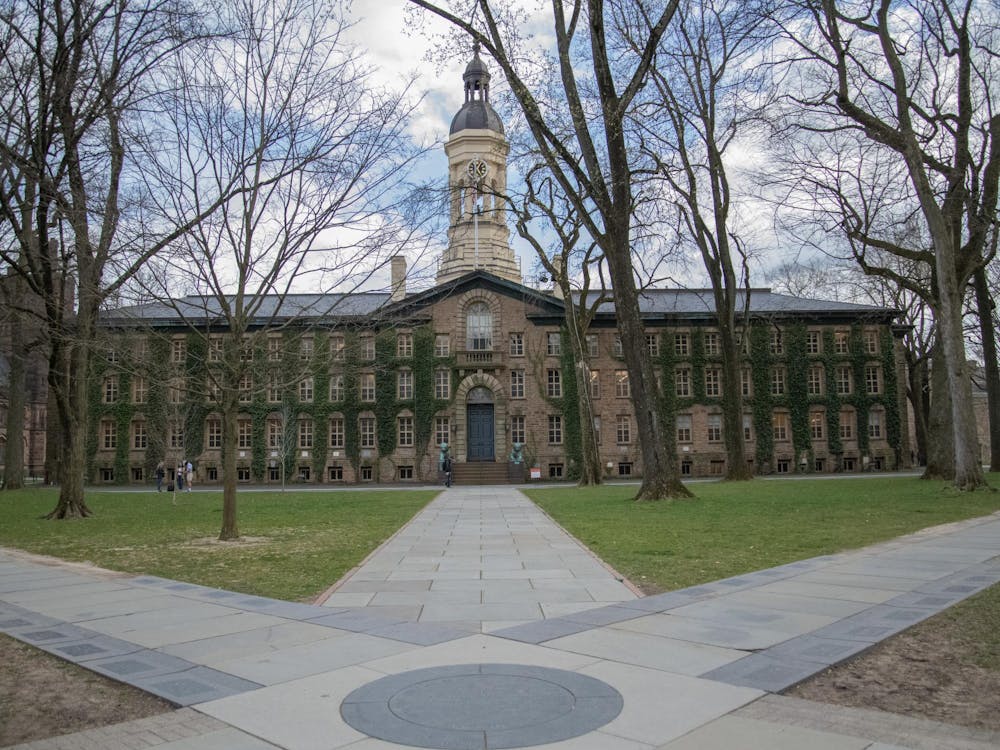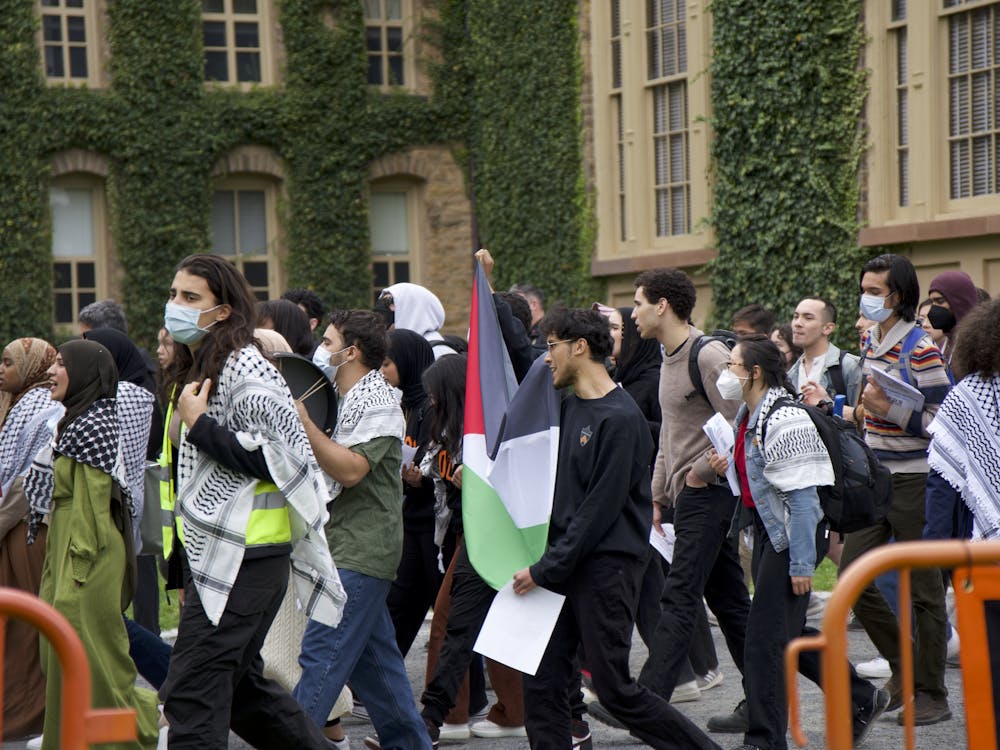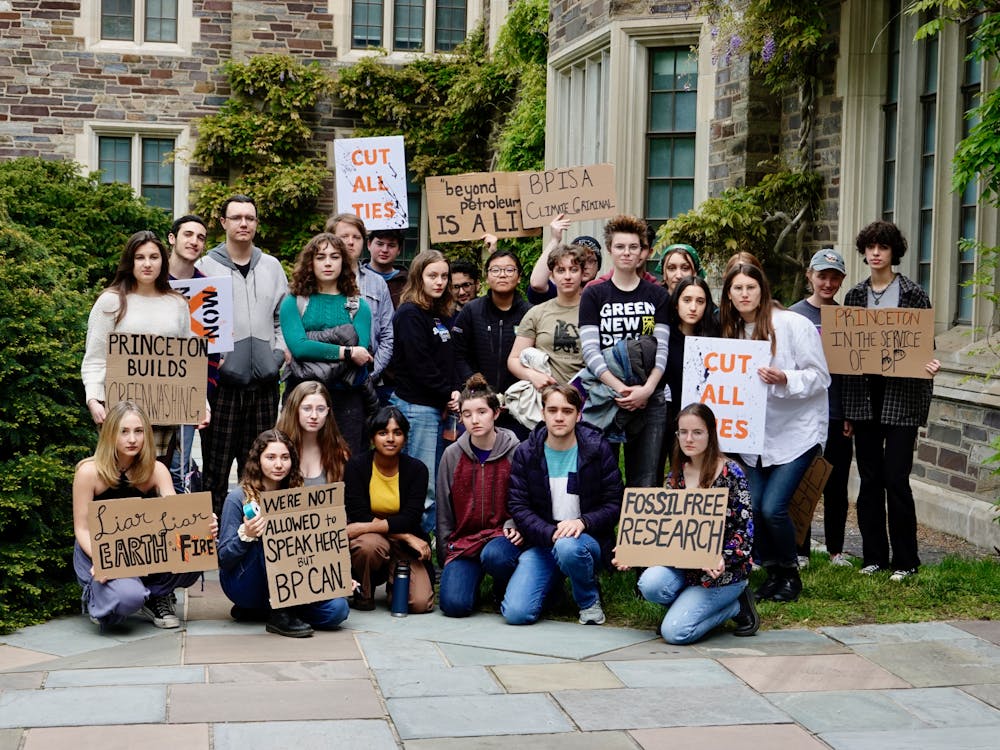As I read “On arming the bubble,” published in The Daily Princetonian on Oct. 19 by senior columnist Sarah Sakha, my heart rate quickened. Although well intentioned, her reservations about arming Department of Public Safety officers in case of an active shooter on campus are deeply misguided. In light of several recent tragedies, it seems like everyone has an opinion about school shootings based on their biases towards guns, mental health, police militarization, etc.
Having armed officers protecting students from these types of threats is necessary and relevant. Sadly, my opinions come from personal experience.
I will never forget the feeling in my gut. Just as I finished my college application in the cafeteria, the lightning blast of shotgun shells pounded through the hallways of my plain suburban high school. With fire alarms squealing in the background, I scrambled into lockdown. I held two strangers’ hands in mine for what felt like days. That was nearly two years ago. Since then, I’ve sought therapy, and I’m getting better.
What I know now is that the shooting only lasted 80 seconds. In that time, the shooter took two lives, a female classmate’s and his own, before he was overcome by our armed school resource officer. I may owe my life to armed officers, both the armed guard stationed at my school, and the dozens who flooded the building afterwards to ensure our safety.
I cannot be more thankful that my school district took school shootings seriously. Post-Columbine, they armed school guards, providing them with regular training on active shooter scenarios. Unfortunately, these are common enough that law enforcement officials know what works and what doesn’t.
I am not writing to engender sympathy. Instead, I want the University population to know armed officers are not gratuitous. Sakha argues that “the decision to keep campus gun-free has never compromised our safety.” Yes, fortunately, Princeton has never experienced a campus shooting.
But my high school had never experienced a shooting either, until it happened. I sincerely hope that a shooting never happens on this beautiful campus, and I sincerely believe it never will. However, it could happen, and we need to be prepared.
I hate guns as much as, if not more than, online casino your average liberal Ivy Leaguer. They have caused destruction not only in my life, but also throughout America. However, I think it’s time to enter a more nuanced discussion than simply “all guns are evil and let’s pretend they don’t exist.”
Sakha asks that, if “less than two years have elapsed” since former University president Shirley Tilghman denied DPS’s request for access to firearms, then “why do we suddenly need to bring guns to our campus?”
The short answer is that, despite overall rates of homicide and crime decreasing, rates of mass shootings are going in the opposite direction, most drastically in the past decade, according to a 2014 FBI study. Nearly a quarter of all mass shootings in the United States between 2000 and 2013 took place in schools, with 7.5 percent of mass shootings on college campuses.
This is no small threat; we can’t be willfully unprepared. DPS’s former policy was “not to engage [a] shooter but to set up an outer perimeter and wait for the local police,” according to a 2013 article in the ‘Prince.’ DPS officer Paul Proctor was quoted in the article saying “Our perimeter will just keep moving back away from wherever someone armed is going.” Basically, their imperative was to keep a close watch, and wait for someone less acquainted with campus, like the Princeton Police Department, to arrive later and save students’ lives.

Sakha overexaggerates fears of a slippery slope, where “students and faculty could contend that they too should be able to carry a weapon.” Students may argue that, but they realistically won’t get very far. Allowing a trained law enforcement officers to have access to guns should they need it, and allowing any untrained student or professor to open carry to brunch at Forbes College are two very different scenarios. Let’s not conflate the two.
Sakha, at the end of her piece, calls for the University to instead “allocate more resources towards implementing greater security measures to minimize the probability of gun violence.” Prevention is obviously the best way to deal with school shootings, and I wholeheartedly agree. I would love to hear what preventative security measures she would like to put in place. Maybe she means that we should allocate more funding for the Center for Psychological Services and other mental health initiatives on campus to reach out to troubled students. Maybe, by security, she means encouraging students to engage those who seem disconnected and lonely. These are the FBI’s most recommended methods. Former U.S. Attorney General Janet Reno observes that “it is critical that we do all we can to identify young people who need our help, and then get them the help they need,” in the 2000 post-Columbine report.
And while we wait for such a program, we must allow DPS to stand vigilant and prepared. Yes, guns are often detrimental, but they exist, and we have to acknowledge their threat instead of willfully being vulnerable to the chaos they facilitate.
Joe Redmond is a chemical and biological engineering major Littleton, Colo. He can be reached at josephar@princeton.edu.








